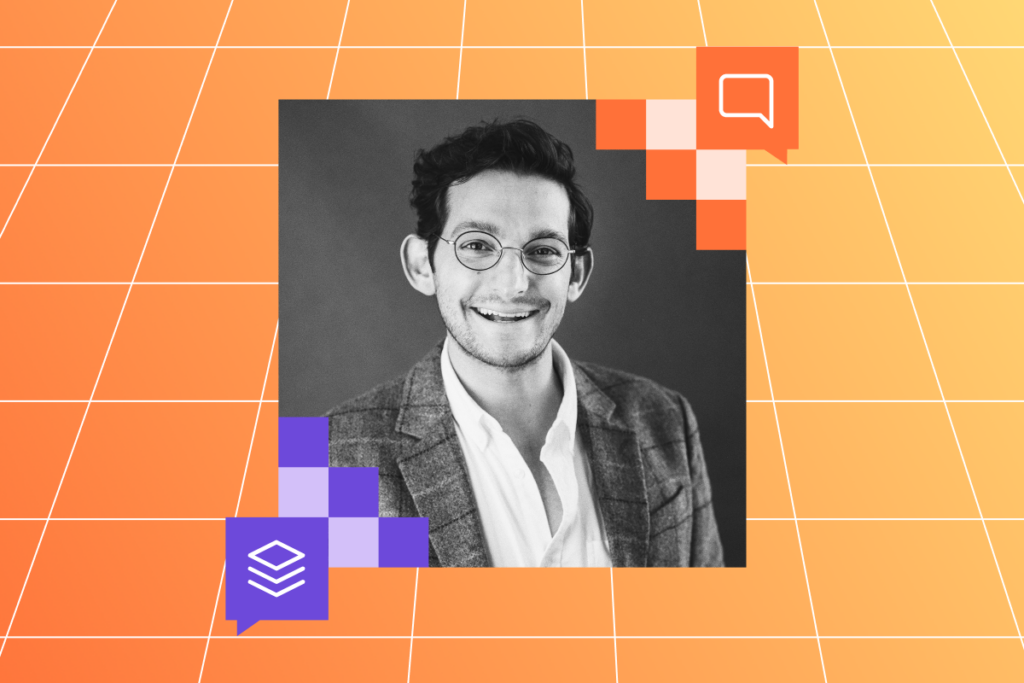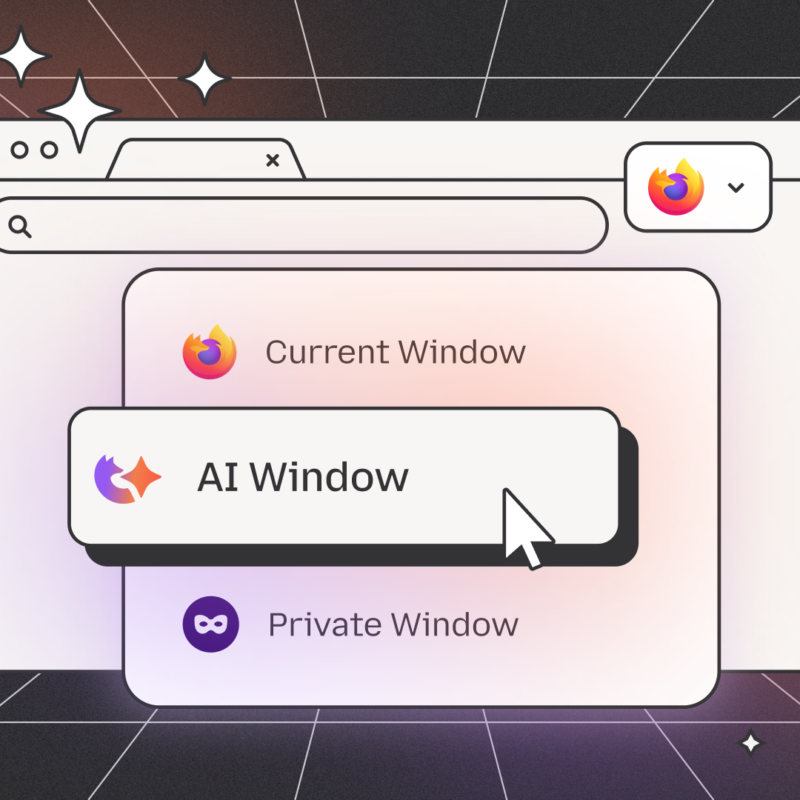Matt Klein, Reddit’s head of global foresight, on the cozy corners of the internet

Here at Mozilla, we are the first to admit the internet isn’t perfect, but we know the internet is pretty darn magical. The internet opens up doors and opportunities, allows for human connection, and lets everyone find where they belong — their corners of the internet. We all have an internet story worth sharing. In My Corner Of The Internet, we talk with people about the online spaces they can’t get enough of, the sites and forums that shaped them, and what reclaiming the internet really looks like.
This month we chat with Matt Klein, a researcher, writer and advisor who currently serves as Reddit’s head of global foresight. We talk to him about The Tiny Awards, which he co-created in 2023 to recognize small, independent projects that make the internet a more fun place to be. The Tiny Awards return this year with the winners announced this August.
What is your favorite corner of the internet?
My favorite corner is the one that I’m currently trying to garden with The Tiny Awards. Last year I helped fund the first annual Tiny Awards which are meant to celebrate the creators making the internet feel cozy, homemade and fun… just because. We received over 300 submissions of small, whimsical web-based projects and over 1,500 votes across our 16 finalists. (Rotating Sandwiches was our winner.)
We’re at it again this year with the same intent: to honor those nurturing a weird, poetic and human-first internet.
It’s easy to claim that the silly, creative web is lost or dead. I’d argue it’s alive and thriving. It’s just not easily found. The Tiny Awards is attempting to shine a small but important spotlight on those doing the important work.
What is an internet deep dive that you can’t wait to jump back into?
I’m an obsessive hobbyist. My hobby is essentially collecting hobbies.
Currently I’m deep into learning Texas hold’em poker. I knew next to nothing about cards a month ago and while I’m not surprised, I’m in awe of the amount of material that’s out there… especially for free. Clips of wild hands from pro tournaments are now go-to mealtime videos. Also shout out to the Reddit community r/MealTimeVideos.
It’s a cliché, but so true: It’s consistently mind-blowing how you can literally become an expert in anything thanks to a bit of time and an internet connection.
What is the one tab you always regret closing?
Gmail. I’m team inbox zero.
What can you not stop talking about on the internet right now?
I love unpacking the cultural implications of our memes. We often view memes as these throwaway jokes or use them in DMs or texts to remind each other that we’re thinking of them.
But memes are embedded with such rich information about the zeitgeist.
If we define language fluency as one’s proficiency to read, write and speak, then we constantly have to understand our memes in order to remain literate online. Language fluency continues to blur into media literacy.
What was the first online community you engaged with?
I remember getting super into eBaum’s World… maybe a little too young. That was my first exposure to the internet. Then came Homestar Runner. Looking back, as a kid, I always presumed the internet was this super strange, frivolous place. As if, that’s all it was. These weren’t really communities though.
The first “community” I got into was a forum for Roller Coaster Tycoon players. Those people were so intense.
In hindsight, this was a pretty solid internet diet to grow up on: the most absurd flash animations and guides to build amusement park empires.
If you could create your own corner of the internet, what would it look like?
Like a few other “Corner of the Internet” guests, I feel really fortunate that I think I’ve nurtured my own little corner already.
Part of this has been through my writing via ZINE, a bit of a lighthouse for others thinking about cultural trends and technology in similar ways.
The beautiful thing about personal corners of the internet is that if you can’t find your niche community, all you have to do is put out the call by hosting the space and the others will inevitably come.
What articles and/or videos are you waiting to read/watch right now?
Like “inbox zero,” I try really hard to maintain “Pocket zero.” Every year, around the holidays when work slows, I spend a week catching up on everything I couldn’t get to throughout the year.
My white whale is Stanford professor Robert Sapolsky’s free course on Human Behavioral Biology. I’ve had that one in my Pocket for a while now. One day I’ll finally get to it. One day…
You recently wrote about a degrowth mindset in internet projects. Why do you think this is important for the future of the web?
In the context of climate breakdown, degrowth argues that an infinite expansion of the economy contradicts the limits of people and materials on Earth. Critics demand we require a shift in values.
I think the same can be applied to our content, attention and creativity online. Big ≠ Good.
We’ve adopted this new, unhealthy reflex where if we pursue a project or merely post something online, we strive for it to become a hit. We’ve become conditioned by virality-level metrics and the black-box of an algorithm. I call it Audience Capture. Instead of making what we want, we hand over control to the audience or platform and let them direct us. We’ve become captured. Too often, we sacrifice our creative integrity and sanity for “bigness.” Everything has to be monetizable, resonate with the global lunchroom table, enhance the personal brand, or lead to some other opportunity.
As a result, play for play sake feels like it’s on the edge of extinction. That’s not good.
The tenants of degrowth center around 1. the sustainability of ecosystems, 2. useful production — make what’s needed, not what could be made, 3. circularity to avoid waste, 4. sharing and cooperation through positive-sum partnerships, 5. local production and consumption, 6. work-life balance, and 7. relationships over output.
By adopting these mental models, not only can we curb creator burnout and anxiety experienced by so many, but yield more fruitful, fulfilling and creative works.
Matt Klein is a researcher, writer and advisor to organizations seeking to make sense of our technology and media. As a global speaker, Klein advises the UN, investors, the press, and leading brands on how to think about our future, and his Webby-winning publication, ZINE, does the same by explaining overlooked social shifts. As a digital anthropologist, he is currently head of global foresight at Reddit and resident futurist with Hannah Grey VC.


